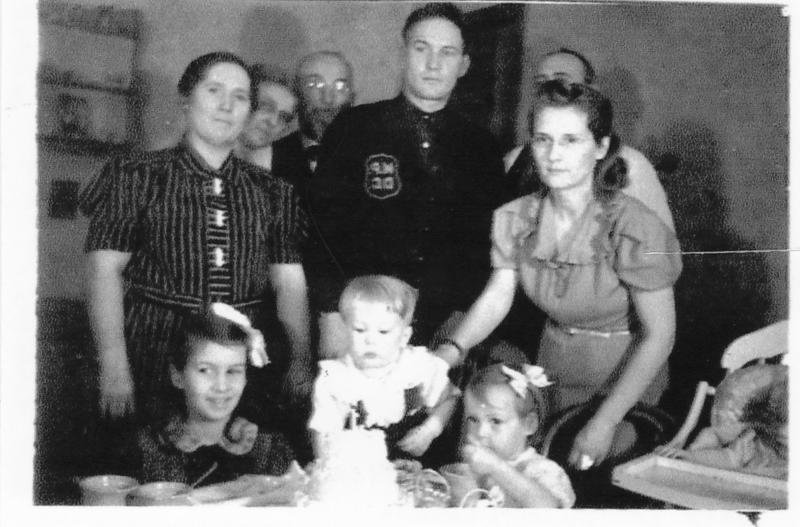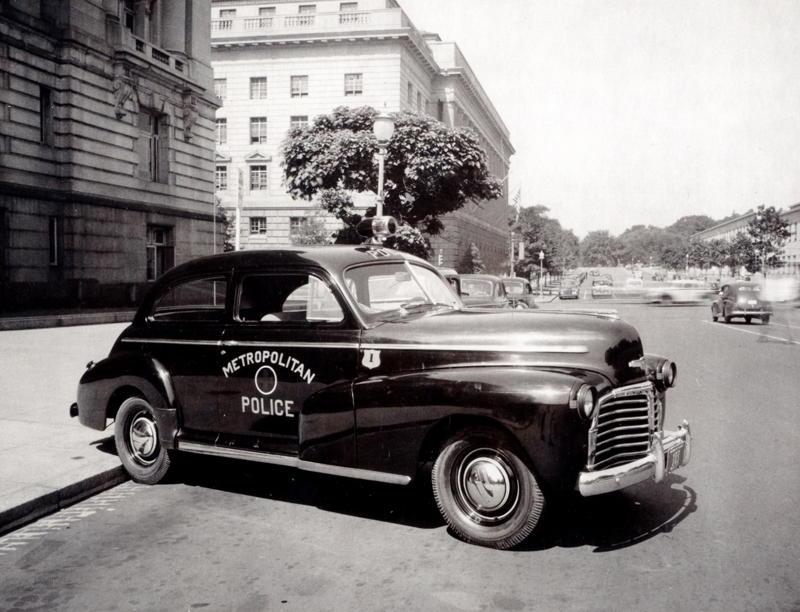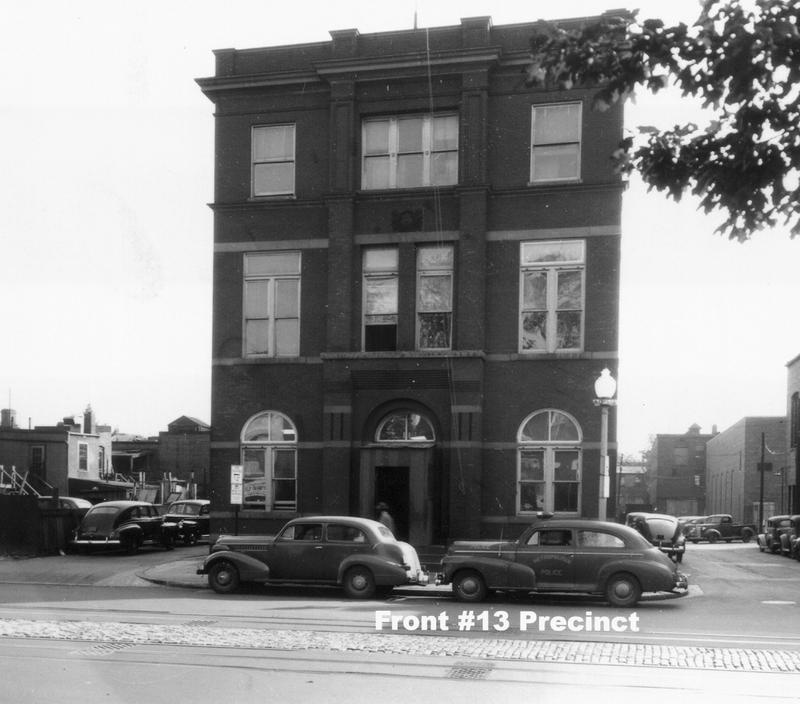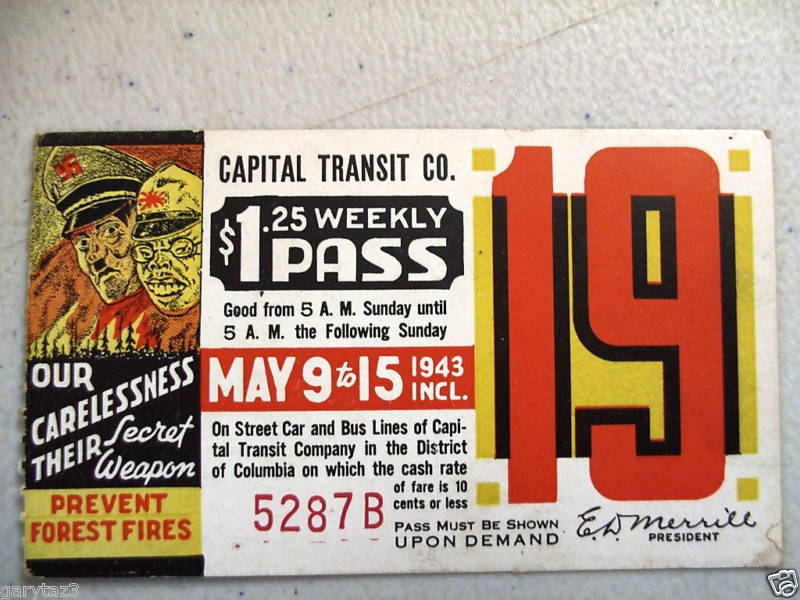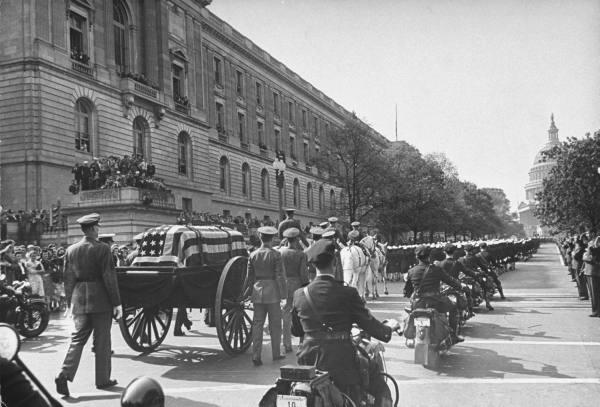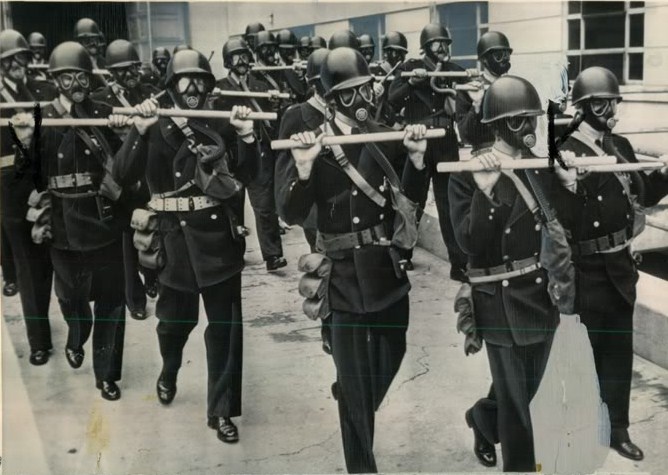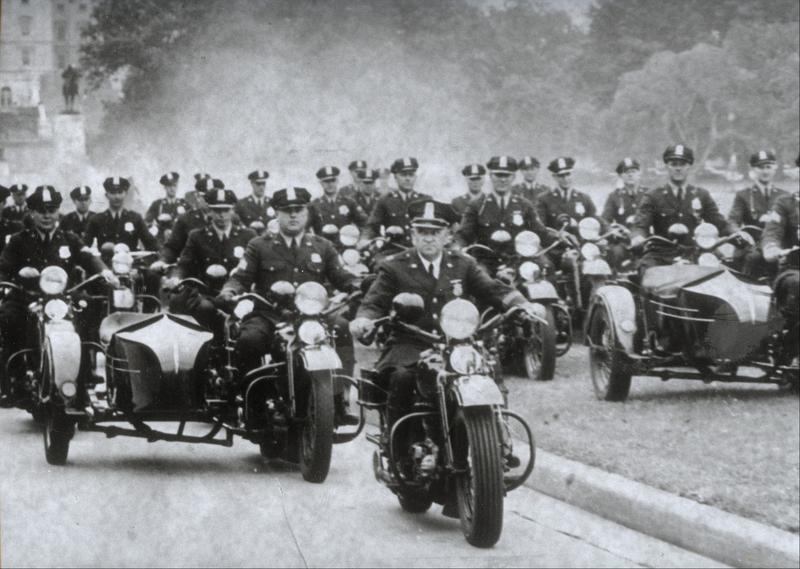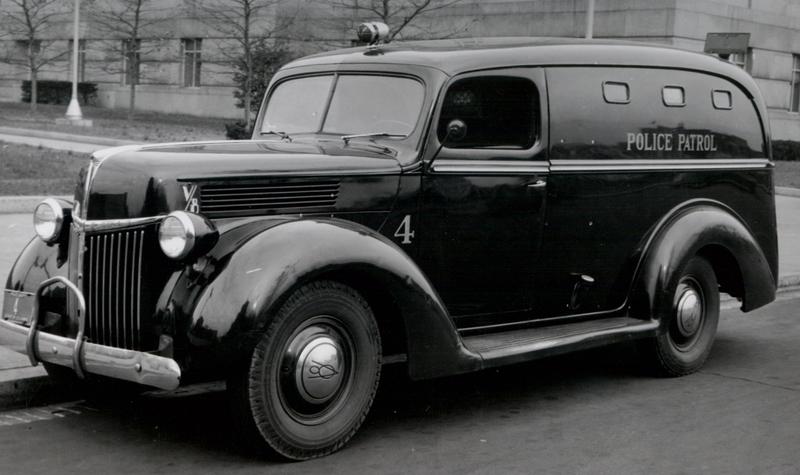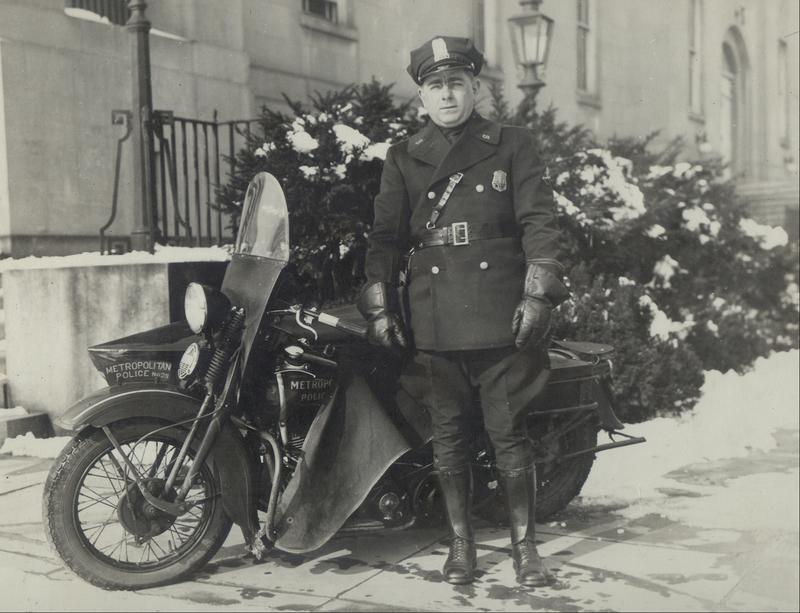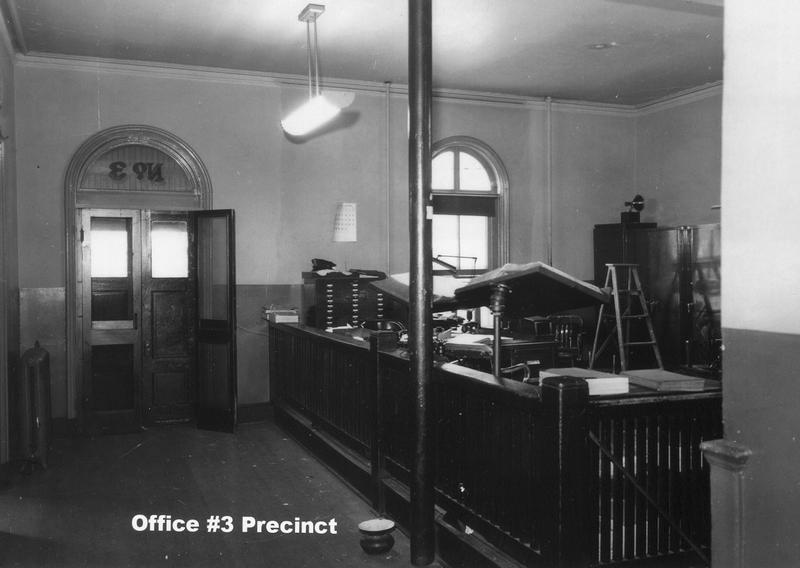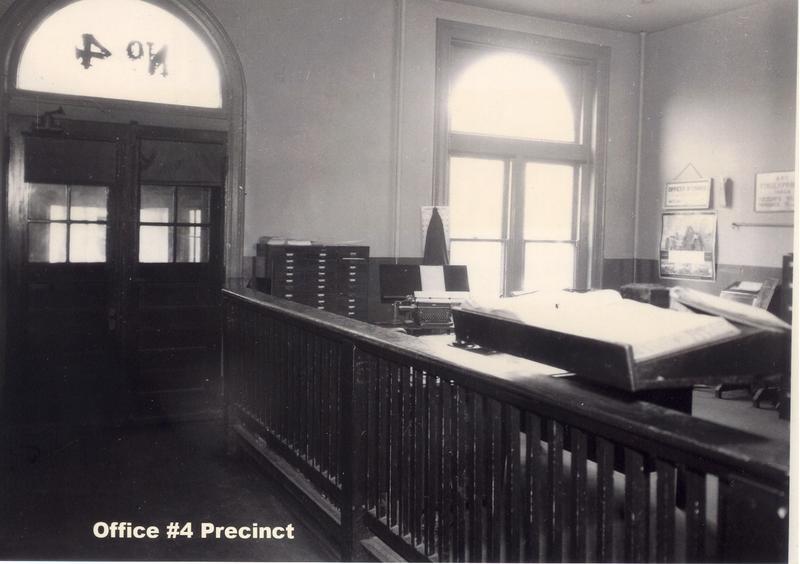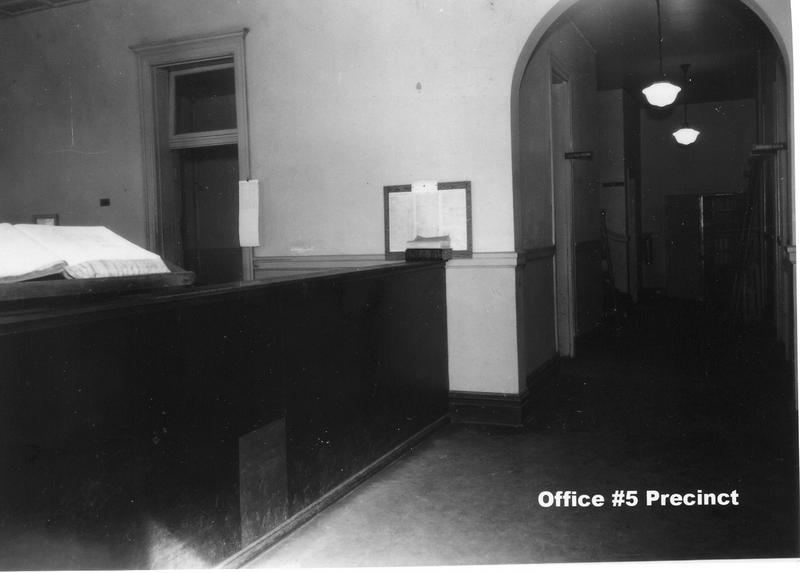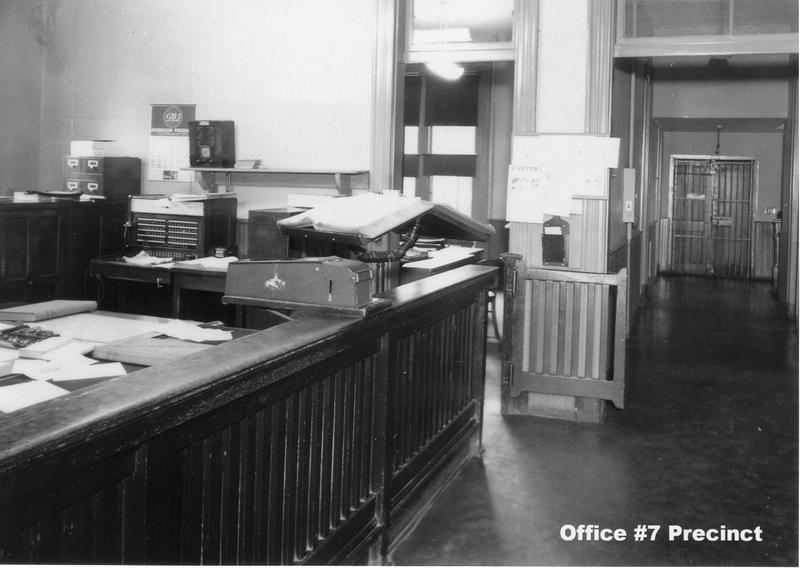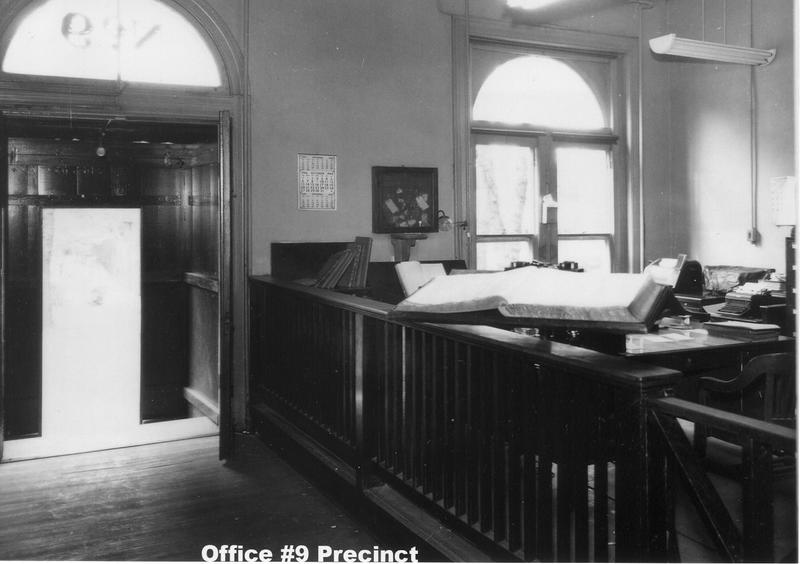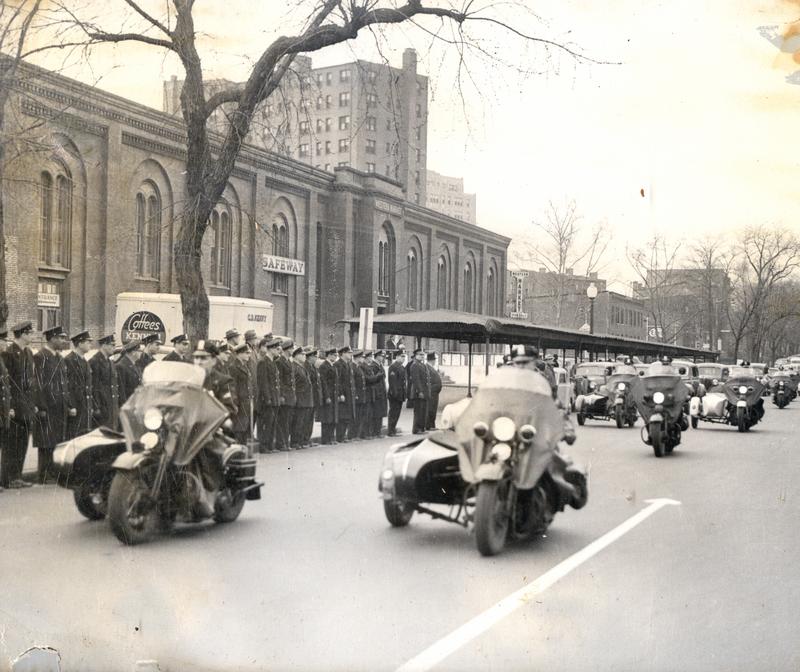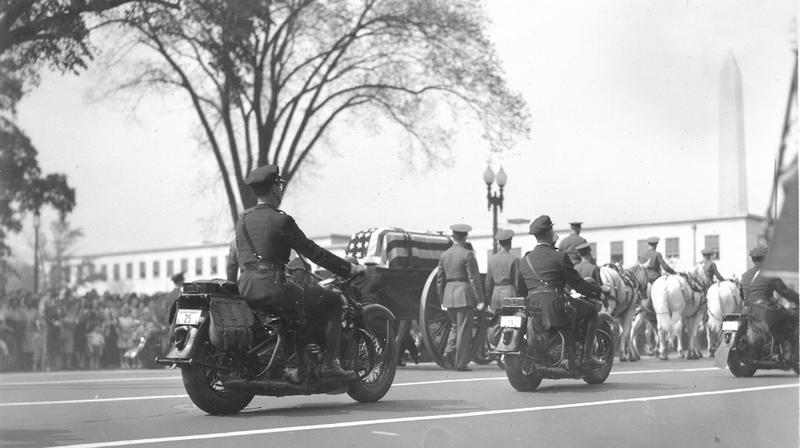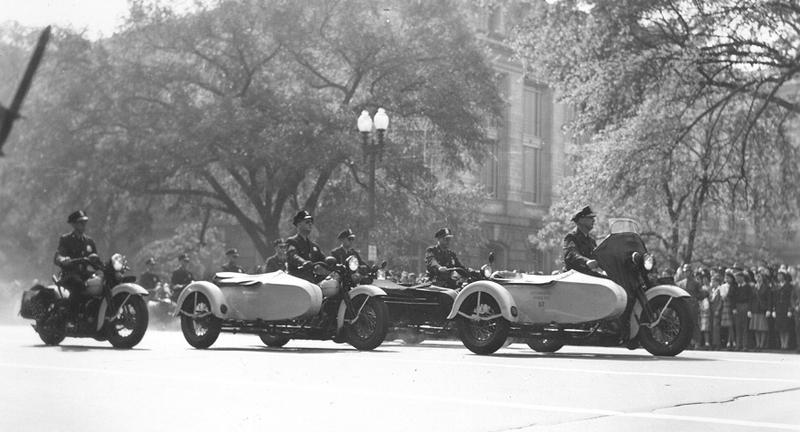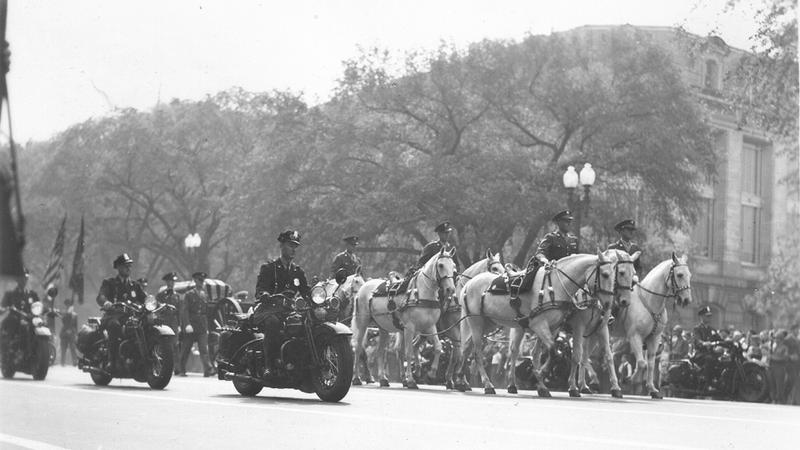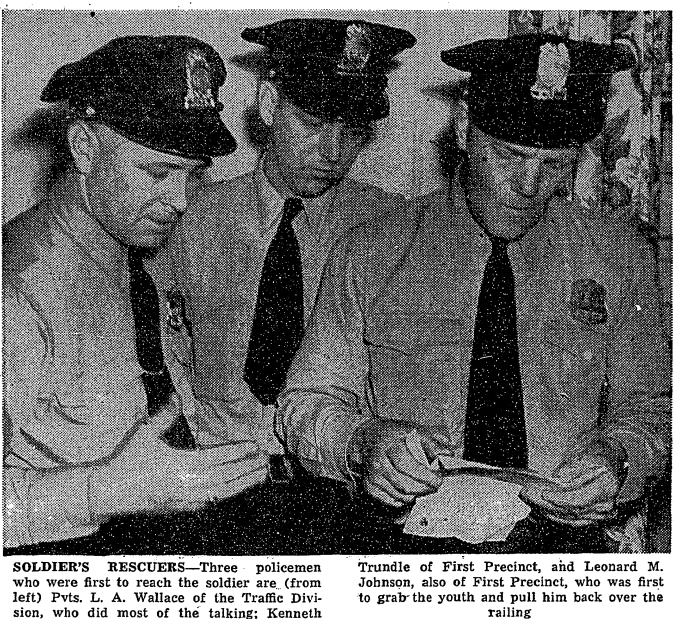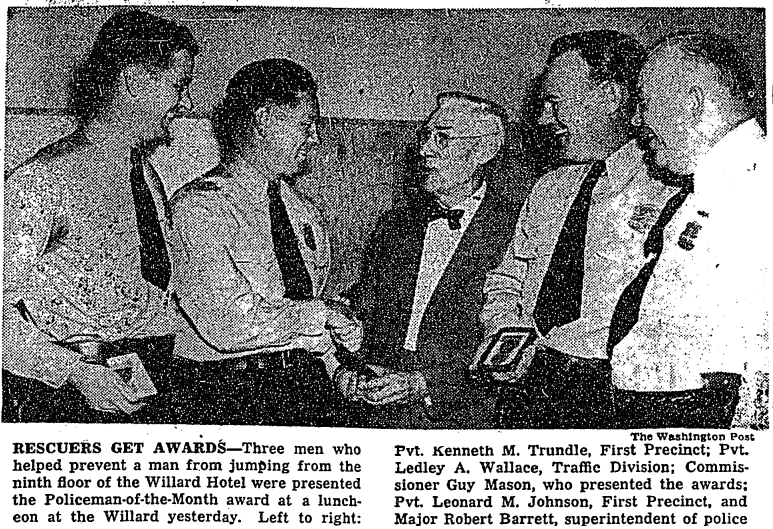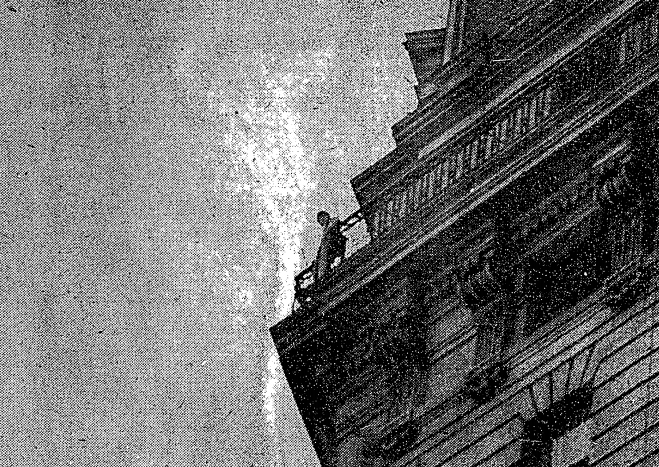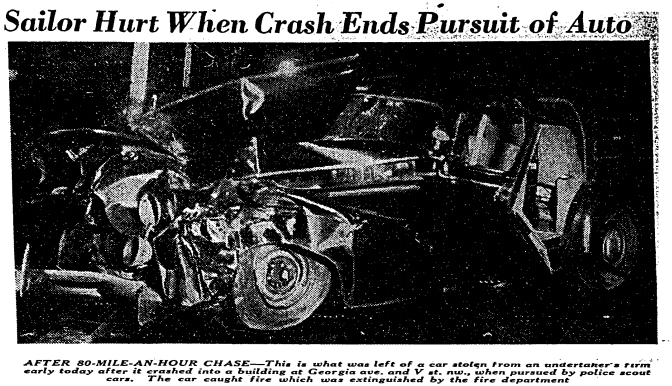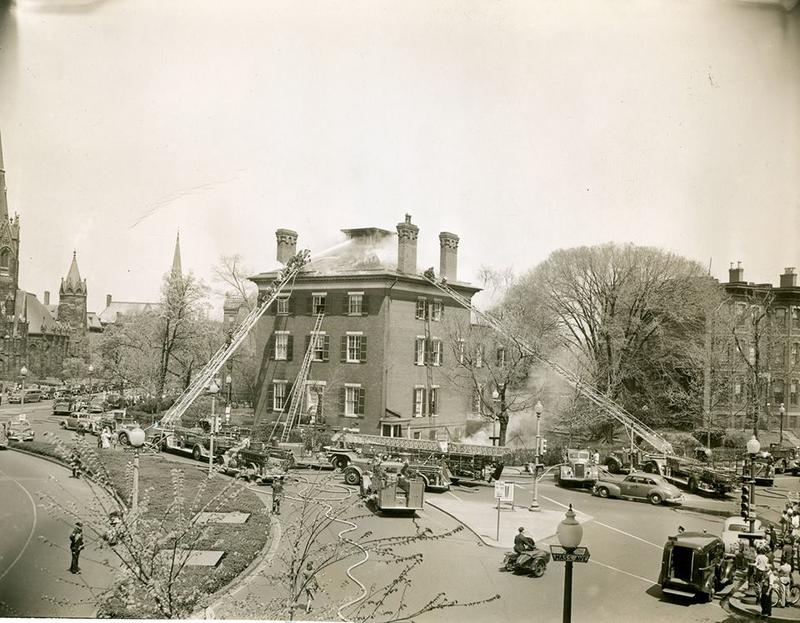Washington D.C. Metropolitan Police M.P.D.
1940 to 1949
Germany begins the invasion of Europe - Bismark Sunk - Pearl Harbor Attacked - The Holocaust - Iwo Jima - D-Day - Germany surrenders Hitler Kill's Himself - 2 Atomic Bombs on Japan - WAR ENDS ! - Republic of Ireland formed as Independent Nation -
AMERICA IS AT WAR ! These must have been some really interesting years to have been in Washington D.C. There were so many countries involved in one way or another in the war D.C. must have been running active 24 x 7. From the emotions and activities of a War to Hollywood making their movies reflecting the war and it's war rooms ect., The everyday life of the 40's in Washington must have been one to see......
1940 to 1949
BlackSheep Productions 2009
1943 - Inspector Richard "Dick" H. Mansfield retired after 32 years on the force. A cartoonist and traffic safety speaker, Dick would draw cartoons and give "Chalk Talks" to school children about traffic safety, (MPD).
1948 - Harbor Precinct responded to an airplane crash that killed 55 passengers when an Eastern Airlines passenger plane collided with another plane over the Potomac River. A year later, the harbor Precinct would again be called upon to rescue passengers from a Capitol Airlines plane when it crash landed into the Potomac River in heavy fog , killing 4 of it's 23 passengers, (MPD).
1949 - Following a train hijacking in Martinsburg, West Virginia , in which 147 passengers were robbed at gunpoint and some pistol whipped; two teenage suspects forced the trains engineer to place the train on a siding. They escaped, stealing several cars along their route. Tips led D.C. Police officers to a pawn shop on Pennsylvania Avenue, where the two robbers
Rookie Percey Legg and family, more pictures of Officer Legg on the 1950's page
1941 Traffic Division
Photo provided by the M.P.D.
Photo of a 1940's patrol wagon, notice the cage behind the drivers seat...
Photo provided by the M.P.D.
M.P.D.'s 1941 Joe Osterman
Photo provided by the M.P.D.
Here are a few photos of the entrance to a few of the M.P.D. Precincts during the 1940's. The days of fans not air conditioners, Am radio not Serious radio, Type writers not computers, black and white TV's not You Tube and America's highest point....
Photos provided by the M.P.D.
Photo provided by the M.P.D.
1941 M.P.D. Police funeral
April 12th, 1945 Funeral for President Franklin D. Roosevelt
Photos provided by the M.P.D.
Photos provided by the M.P.D.
The below story is from the blog, "Ghosts of D.C." to view their blog click the tab to the left.
Here’s a crazy story for you from the 1940s. This was published in the Washington Post on June 4th, 1949.
"A young Air Force private was grabbed from a ninth-floor ledge of the Willard Hotel yesterday by three policemen who had spent 25 minutes persuading him from plunging to death.
Paul J McDuff, 19, of Bolling Air Force Base, was snatched from death as he swayed outside an iron railing more than 110 feet above the crowded corner of 14th st. and Pennsylvania ave. nw. in Post Square.
Cheers surged from the throats of those who had watched the policemen crawl inch by inch to the target of a thousand eyes for 25 terrifying minutes.
The heroes are Pvts. Leonard M. Johnson who threw the life-saving strangle hold on McDuff; L.. A. Wallace, who kept up a stream of rapid-fire reasoning, and Kenneth Trundel, who dragged him to safety.
The work of the policemen and Johnson’s final lunge at McDuff were termed by observers a miracle of coordination and split-second timing.
McDuff, knocked unconscious by the force of the blow which saved his life, was taken to Gallinger Hospital for observation.
He was confined in the locked psychiatric ward at Gallinger. He refused to answer questions and declined food. Though free to get out of bed and move around the ward, occupied by another mental patient, he remained in bed with his eyes closed most of the time.
McDuff crawled to the parapet through a ninth-floor window at the end of a short hall facing 14th street. He was not registered at the hotel.
On his hands and knees he crawled down the ledge until he reached the extreme edge of the corner racing the Capitol Dome. There he inched himself over the chest-high iro nrailing [sic] and stood high above the intersection holding to the fence with back-flung arms.
For a few minutes, pedestrians walked unconcerned up and down 14th st.; horns blew in the usual noise of the city.
…
Wallace stopped as soon he [sic] saw McDuff. Their eyes were approximately 15 feet aparts. McDuff’s eyes were crazed with a mixture of fear and confusion, and in a shaking voice told the officers he would make the plunge if they came any closer.
And then Wallace started talking. With sweat sprouting from his brow he kept talking for 25 minutes.
His first words: “Hey, Mac, Let’s talk it over. Come here a minute,” and for the first 14 minutes the officers stood their distance. In these minutes, a life hung in the balance. A false move could have sent the soldier plummeting to his death, and yet an untaken move meant more minutes in which his life could be lost. In these minutes Wallace was sizing up his opponent.
His words, delivered with excitement, yet without panic, were taken down verbatim.
“Let’s talk it over, Mac. We got a lot to talk about.”
“There’s no sense in jumping, Mac. Think of all the people you’re going to hurt.”
“Just talk it over with me for two minutes, that’s all.”
“Don’t jump now, Mac. You’ve got your whole life to go.”
“Where’s you home, anyway, Bud? What’s your name?”
“Hey, son, that’s a long way down there. You’ve been in the Air Force. You know that’s a long way down there. Hey, son, don’t jump now. Take it easy.”
“Hey, Joe, have you got a cigarette? I want one bad, and I’m damned it I didn’t leave mine down there. Give me a cigarette, will you, Joe?”
Wallace wasn’t waiting for McDuff to answer, and the soldier spoke rarely, and then only in low mumbles. Once or twice he told the officers not to come closer or he would jump. Wallace, who remembered nothing of his conversations, interpreted one of these mumbles to mean “troubles.”
“You got troubles? Tell me your troubles, Mac. I got troubles. We all got ‘em. You know that”.
“Come over here. We’ll see what’s wrong.”
At this point Wallace produced a bottle of whisky, which had come from the bar nine floors below.”
“Hey, Joe. Do you drink? Here’s a bottle. Let’s have a little drink. Just you and me.”
“What are your troubles, bud? Hey, what is your name anyway? Joe? It used to be Joe, when I was in the Army. Mac? Jim? Jack?”
During a pause in the monologue the officers ducked under one of the horizontal bars, perhaps two feet closer to McDuff. He said again he would jump if they came closer.
During the next few minutes, while maintaining a stream of conversatoin [sic], the officers ducked under successive bars until they were less than 10 feet and 2 bars from their man. There they waited.
Don’t you like the Army, Joe? We’ll get you out of the Army. We guarantee it, if you just come over here.”
“What would your mother think of you now,” Wallace asked.
“Me, I got no mother, but if I had I wouldn’t hurt her for anything in the world.”
“Hey, I’ll help you climb over that fence, son. Just come over here.”
A siren screamed as the Fire Department rushed to the scene with a big ladder, and a pitifully small canvas life net.
“Turn ‘em off, turn ‘em off,” an officer shouted on the ninth floor. “Those sirens will scare him into jumping.”
Wallace resumed his conversation with an invitation.
“Hey, Mac, how about coming home to my house for a nice friend chicken dinner?”
Above McDuff, a hotel employe had started lowering a rope from the floor above, to lasso the man to safety.
On the 14th st. side, another officer was crawling, apparently unnoticed, toward him.
Beneath McDuff, the Fire Department prepared to raise the ladder.
For a split second the ladder held his attention.
In that split second Johnson acted.
From a low crouch to pass underneath the last horizontal bar, the officer leaped. With a lunge he wrapped his right arm around McDuff’s neck, and bent the soldier back over the rail, to safety.
The crowd yelled, in relief and admiration, as the officers hauled McDuff through a window. He had been knocked unconscious by the force of Johnson’s grab. on the floor of the Smith suite, McDuff lay rigid, sweat streaming from his flushed face.
It was later discovered that McDuff had been recently transferred to Bolling Field and was despondent due to a complete reversal of fortunes in his military career.
The policemen were subsequently hailed as heroes are presented with awards for valor at a luncheon in August, held (of course) at the Willard Hotel.
"Police Save Soldier From Suicide Leap at the Willard"
Ghosts of D.C. and another Great story !
An 80-mile-an-hour chase from Chevy Chase Circle
Six months before D-Day, a wild police chase through from Chevy Chase to Georgia Ave., NW, ended in a massive crash and fireball. Behind the wheel was a young man in the navy from Bainbridge, Maryland. Below is the report in the Washington Post on January 7th, 1944.
An 80-mile-an-hour chase involving police scout cars and an automobile stolen from an undertaking firm, ended early yesterday when the auto, driven by a young sailor, crashed into the brick columns of a bus barn at Georgia ave. and V St. nw., and caught fire.
The sailor, Charles Steven Thornburg, attached to the Naval Training Center at Bainbridge, Md., suffered a broken leg, possible skull fracture and internal injuries. His condition as described as critical at Garfield Hospital.
The chase began when police observed the car at Chevy Chase Circle. They started pursuit and reported via two-way radio to Charles Clay, jr., police radio dispatcher. Clay assigned other scout cars to the chase, and the speeding car was later seen at Georgia ave. and Peabody st. nw.
The chase continued south to Park rd. as reports were flashed to Clay, who dispatched other scout cars to the vicinity with instructions to block the street. Finally reaching V st., the auto piled up against the brick columns. Segments of the radiator flew off and broke a plate glass window across the street at 2113 Georgia ave. Fire apparatus and an ambulance were dispatched there.
The wrecked sedan was stolen from Joseph Gawler’s Sons, Inc., 1756 Pennsylvania ave. nw, police said.
CpG
P.O. Box 911
Foxborough, Ma.
02035
A 1947 M.P.D. Motorman checking out the scene of a D.C. Fire...
